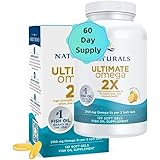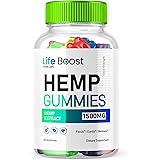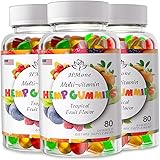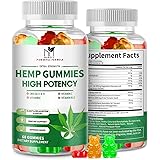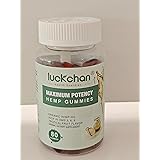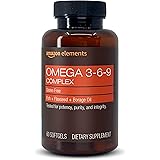The persistent hum of worry, the knot in the stomach, the racing thoughts – for many, anxiety is not merely a fleeting emotion but a constant companion that profoundly impacts daily life. As shared in the accompanying video, the journey of navigating chronic anxiety can span years, often prompting individuals to seek various strategies for relief. Among the diverse natural approaches available, CBD oil for anxiety has emerged as a significant area of interest, with personal testimonials highlighting its potential role in managing symptoms.
My own experience, spanning over a decade with debilitating anxiety, led me to explore numerous avenues for natural reduction. The exploration of hemp oil, or CBD, over the past year and a half, has been a particularly insightful component of this broader journey. This article delves deeper into the physiological mechanisms at play, the specifics of CBD oil usage, and the broader context of holistic wellness, building upon the personal insights shared in the video above.
Understanding the Body’s Stress Response: Sympathetic vs. Parasympathetic
To comprehend how CBD oil for anxiety may offer support, it is imperative to first understand the body’s intrinsic stress response systems. Our autonomic nervous system is largely composed of two primary branches: the sympathetic and the parasympathetic. The sympathetic nervous system is widely known as the “fight or flight” response. It is activated during perceived threats or stressors, preparing the body for immediate action. This involves increasing heart rate, dilating pupils, and diverting blood flow from non-essential functions to crucial muscles and organs necessary for survival.
Conversely, the parasympathetic nervous system is the “rest and restore” mode. Its activation promotes relaxation, digestion, and regeneration. When the body is in this state, blood flow is optimally directed towards the digestive tract and reproductive organs, facilitating nutrient absorption, healing, and fertility. A healthy individual typically experiences a dynamic balance between these two systems, shifting appropriately based on environmental demands.
The Hidden Triggers of a “Fight or Flight” State
Many individuals mistakenly associate the sympathetic “fight or flight” mode solely with emotional stress. However, as discussed in the video, this response can be triggered by a multitude of chemical and physical stressors, even when one feels emotionally calm. For instance, excessive exercise, insufficient sleep, exposure to environmental toxins and pollution, or even certain dietary patterns (such as eating too frequently) can inadvertently push the body into a chronic sympathetic state. When the body is perpetually stuck in this heightened state, blood flow to vital systems like the gastrointestinal tract and fertility organs is compromised. Consequently, a cycle of feeling anxious, experiencing digestive issues like bloating, and potentially facing reproductive challenges can ensue.
Therefore, true healing from chronic anxiety necessitates a fundamental shift from a dominant sympathetic mode back towards a more balanced parasympathetic state. This rebalancing allows the body’s natural restorative processes to resume, improving overall physiological function and reducing the physical manifestations of stress.
The Role of CBD in Modulating Stress Responses
Cannabidiol, or CBD, derived from the hemp plant, is increasingly recognized for its potential therapeutic properties, particularly in the realm of anxiety management. Unlike its cannabinoid cousin, THC, CBD is non-psychoactive; it does not induce the “high” typically associated with cannabis. Instead, it interacts with the body’s endocannabinoid system (ECS), a complex cell-signaling system that plays a crucial role in regulating a wide range of functions and processes, including mood, sleep, appetite, and immune response. While the exact mechanisms are still being thoroughly researched, it is believed that CBD helps to modulate the activity of neurotransmitters and receptors within the ECS, thereby assisting in the regulation of the body’s stress response. This modulation can contribute to a decrease in the sympathetic response, gently guiding the body towards a more relaxed, parasympathetic state without dulling mental acuity.
Ensuring Quality and Efficacy: Sourcing Your CBD Oil
Given the rapid growth of the CBD market—it has evolved from a burgeoning market to a multi-billion dollar industry, projected to reach approximately $25 billion by 2022—the quality and source of CBD products have become paramount. This exponential growth underscores the widespread demand for natural wellness solutions, yet it also highlights the challenge of navigating a largely unregulated landscape. Consumers are therefore advised to exercise due diligence. Ensuring that CBD oil for anxiety is sourced from reputable manufacturers is critical. Key indicators of a trustworthy product include third-party lab testing results, clear labeling of CBD and THC content (confirming it’s THC-free or below legal limits), and transparency regarding cultivation and extraction methods. These measures help to guarantee purity, potency, and safety, providing peace of mind for those seeking anxiety relief.
A Personal Account: Integrating CBD Oil into an Anxiety Management Plan
My personal journey with CBD oil for anxiety began during a period of intense stress, marked by a demanding work environment, sleep deprivation, and excessive exercise. These factors collectively exacerbated my anxiety, leading to a state of constant unease, low self-esteem, and persistent physical symptoms such as bloating. It was during this challenging time, approximately one and a half to two years ago, that CBD oil was introduced as one component of a broader, holistic healing strategy.
Dosage and Progressive Adjustments Over Time
Initially, a higher dosage of CBD oil was utilized to help temper the severe sympathetic overdrive. This involved administering four pumps in the morning and an additional two to three pumps at night, with occasional daytime use during moments of intense distress. It became apparent that while CBD did not offer immediate, instantaneous relief akin to fast-acting medications, it consistently assisted in subtly lowering the baseline sympathetic response. This subtle shift enabled a more measured and resilient reaction to daily stressors. As significant lifestyle modifications were implemented—such as transitioning from intense running to walking, adjusting dietary habits, and cultivating a more joyful personal environment—the overall anxiety levels progressively decreased. Consequently, the reliance on CBD oil diminished, with usage eventually reducing to just two pumps per night. This reduction illustrates CBD’s role as a supportive tool rather than a permanent crutch, allowing for a gradual decrease in dosage as the body’s natural resilience improved.
CBD Oil for Anxiety: A Complementary Approach to Holistic Well-being
It is crucial to recognize that CBD oil for anxiety is not a standalone cure but rather a valuable adjunct within a comprehensive wellness regimen. My experience, and that which is often observed in working with clients, consistently demonstrates that anxiety healing is a multifaceted process. It necessitates a concerted effort across various aspects of health, including dietary adjustments, mindful exercise, adequate sleep, and stress-reduction practices. CBD oil, when integrated thoughtfully, can facilitate this process by helping to modulate the body’s stress response, thereby creating a more receptive internal environment for other healing modalities to take effect. It is a supportive ally, aiding the body in transitioning from a state of constant alarm to one of greater calm and balance.
The Importance of a Comprehensive Strategy
For individuals considering CBD oil, a consistent daily intake is often recommended for optimal benefits, much like other dietary supplements. Unlike medications designed for acute symptom relief, the advantages of CBD tend to accumulate over time with regular use. Furthermore, the integration of other positive lifestyle elements—such as meditation, spending time with loved ones, prioritizing restorative sleep, and nutritional mindfulness—works synergistically with CBD to foster a robust foundation for mental and physical well-being. These practices collectively reinforce the body’s shift towards a parasympathetic state, allowing for sustained anxiety relief and improved resilience against future stressors.
Future Horizons: Exploring CBD’s Broader Wellness Potential
Beyond its well-documented role in anxiety management, the potential benefits of CBD are being explored across various aspects of health. A noteworthy area of speculation, stemming from the physiological understanding of the sympathetic response, relates to fertility. When the body is in a chronic “fight or flight” mode, blood flow is diverted away from the reproductive organs, potentially impairing their optimal function and nutrient supply. By assisting the body in shifting towards the “rest and restore” parasympathetic state, CBD could theoretically support the conditions necessary for reproductive health. While scientific research is still nascent in this specific area, the foundational physiological principles suggest a compelling avenue for future investigation. This underscores the broad impact that a balanced autonomic nervous system can have on overall health, positioning CBD oil for anxiety as part of a larger conversation about holistic wellness in a perpetually stimulated world.


